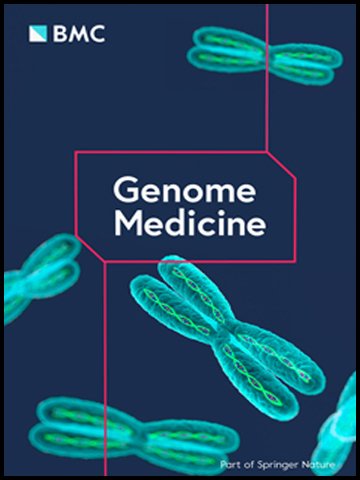将蛋白质组学纳入罕见病常规诊断实践的案例。
IF 10.4
1区 生物学
Q1 GENETICS & HEREDITY
引用次数: 0
摘要
许多患有罕见疾病的人无法获得个性化治疗,因为他们没有确诊的基因诊断。包括蛋白质组学在内的有前途的技术在常规诊断实践中未得到充分利用。现在是时候将蛋白质组学纳入诊断工作流程,以缩短诊断时间并扩大罕见病的治疗选择。本文章由计算机程序翻译,如有差异,请以英文原文为准。
The case for including proteomics in routine diagnostic practice for rare disease.
Many people with rare diseases cannot access personalized therapies because they do not have a confirmed genetic diagnosis. Promising technologies including proteomics are underutilized in routine diagnostic practice. It is time to incorporate proteomics into the diagnostic workflow to shorten time to diagnosis and expand treatment options for rare disease.
求助全文
通过发布文献求助,成功后即可免费获取论文全文。
去求助
来源期刊

Genome Medicine
GENETICS & HEREDITY-
CiteScore
20.80
自引率
0.80%
发文量
128
审稿时长
6-12 weeks
期刊介绍:
Genome Medicine is an open access journal that publishes outstanding research applying genetics, genomics, and multi-omics to understand, diagnose, and treat disease. Bridging basic science and clinical research, it covers areas such as cancer genomics, immuno-oncology, immunogenomics, infectious disease, microbiome, neurogenomics, systems medicine, clinical genomics, gene therapies, precision medicine, and clinical trials. The journal publishes original research, methods, software, and reviews to serve authors and promote broad interest and importance in the field.
 求助内容:
求助内容: 应助结果提醒方式:
应助结果提醒方式:


